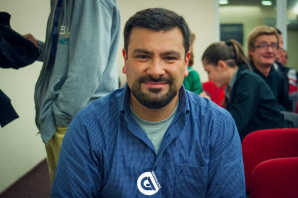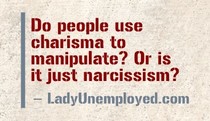
 My attention has been drawn to the Trinity Brentwood blog once again, as new information relevant to my concerns has been placed online. The information concerns two evangelistic organisations that are attached loosely to Trinity. These two, respectively known as Zeal Outreach Ministries and Tony Anthony International Evangelist, are dominated by the people in charge, Peter Ruck and Tony Anthony. Both of these men share much in common with the style and methods adopted by Michael Reid, the former leader of Peniel and frequently mentioned in this blog. In each case there is a story of conversion followed then by the development of an evangelistic ministry. No formal theological training of any kind is part of the narrative. Both organisations show the opportunities available to an articulate person who wants to be powerful and significant in this often murky world of do-it-yourself evangelistic empires. This last expression well describes Michael Reid’s Peniel enterprise until his ‘fall’ in 2008.
My attention has been drawn to the Trinity Brentwood blog once again, as new information relevant to my concerns has been placed online. The information concerns two evangelistic organisations that are attached loosely to Trinity. These two, respectively known as Zeal Outreach Ministries and Tony Anthony International Evangelist, are dominated by the people in charge, Peter Ruck and Tony Anthony. Both of these men share much in common with the style and methods adopted by Michael Reid, the former leader of Peniel and frequently mentioned in this blog. In each case there is a story of conversion followed then by the development of an evangelistic ministry. No formal theological training of any kind is part of the narrative. Both organisations show the opportunities available to an articulate person who wants to be powerful and significant in this often murky world of do-it-yourself evangelistic empires. This last expression well describes Michael Reid’s Peniel enterprise until his ‘fall’ in 2008.
Before I tell the outline stories of these two individuals, I want to mention the question I raised on the other Trinity blog site. I asked, and myself answered in a generalised way, the question as to whether an independent evangelist needs theological training. I suggested that many, if not all, independent evangelists fail to obtain any theological qualifications. The core preaching technique for the majority of these evangelists in independent fellowships will be to tell their conversion story or testimony over and over again. The details will be sometimes changed and the conclusions altered but the core message will remain identical. This testimony style of preaching is not in itself wrong but when a particular preacher uses it over and over again, one has to wonder whether they have anything else to say. In some Christian cultures, every Christian is encouraged to stand and make a public testimony of how they became a Christian. This declaration of an individual’s Christian journey is an important milestone in their journey of faith. It may boost their confidence as a self-identified member of the group so that they may find then that they are ready to accept new responsibilities. The testimony on its own should not, however, be considered as the same thing as a teaching ministry. But this, sadly, will be as far as many untrained evangelists aspire. They may also, as I mentioned on the other blog, practise, under the guidance of a mentor, the devices of voice delivery, hand movements etc. so that their preaching style would be as polished as possible.
A further part of the ‘training’ of the evangelist might be a crash course in bible quotes. I rather irreverently suggested in my other blog contribution that the quotes learned would be mainly to do with ‘sin, sex and salvation.’ Whatever the quotes being used, they would be to prop up a particular theological emphasis favoured by the congregation concerned. It might be Calvinist, Neo-Calvinist or Pentecostal or some other flavour. Needless to say, from the perspective of the writer of this blog, quarrying the bible for texts to support a particular favoured belief system, is not a valid way to use the bible. The bible should always be allowed to speak for itself, not press-ganged into supporting a particular theology. But I have to leave that point to one side for the moment. The point of this short consideration of the training of many independent evangelists, including the two we want to discuss, is that any proper in-depth theological training is absent. The result of having no theological training or proper study of the bible is that you will be trapped within a small container of one narrow theological vision. If the preacher/evangelist is thus unable to break out of his pre-existing theological horizons, then the same fate is going to be reserved for all those who listen to him and believe that he is a man of God. Narrowness, shallowness of vision, blinkered perspectives and outright ignorance will be will be visited on all those who find themselves attached to evangelists whose grasp of the Christian faith is superficial. To be deprived of even a glimpse of the broader perspectives of Christian teaching because of the inadequacies of the preacher is a form of Christian abuse.
The two evangelists I want to consider who, it is claimed, have had no theological training of any kind are Peter Ruck and Tony Anthony. Peter Ruck was converted to Christianity through the ministry of Michael Reid at Peniel. Michael Reid did nothing to encourage Peter in any kind of ministry and it was only after the former was expelled from leadership that Peter moved towards discovering what he might do in evangelising. According to a well-informed source on Nigel Davies’ blog, Peter had himself appointed as a Youth Leader in the church before deciding that he had a vocation to be an evangelist. Peter is, to all accounts, not a bad man but it would appear from a perusal of his web-site that he is extremely naïve and thus liable to do damage to others. He is also in danger of being taken in by other more obviously ‘dodgy’ types within the unaccountable world of independent evangelists. Peter Ruck has annually organised a big festival, The Way, that took place at Trinity last week. No report has appeared on how many people came to this event but the people who are invited to speak at this event also belong to the tribe of self-appointed and self-authorised evangelists. As individuals they may be moral and well-meaning. One cannot, however, have any confidence that they will indeed help people to discover God or a deeper understanding of the Bible.
One person who was not invited to The Way by Peter Ruck was the evangelist Tony Anthony, even though, until recently, the two worked closely together. Tony is still in the process of planning a come-back into the world of independent evangelists, after his disgrace when his book, Chasing The Dragon was found, on detailed examination, to be a tissue of fantasy and exaggeration. I wrote about this book in a previous blog post. Once again, like Peter, Tony has had no training of any kind and his preaching seems to be a constant telling and retelling of his (fantasy) story about his past. The well-informed source from Peniel/Trinity suggests that the other Peter, Peter Linnecar, Trinity’s leader, is also guilty of making every sermon a personal testimony. Peter Ruck was, apparently, completely taken in by Tony Anthony’s ministry and such a failure of discernment is always going to be a hazard in the world of the untrained and unaccountable.
I am reaching the end of the allotted number of words I allow myself, and I want to finish with this final question. People like Peter Ruck and Tony Anthony set up mini-evangelistic empires and receive invitations from equally naïve Christian pastors and their congregations who hear their testimonies without a scintilla of doubt. Who are the victims here? It is the long-suffering members of congregations who long to be fed with wholesome Christian teaching but instead listen to the superficially attractive messages of people who behind them have no training, no theological depth and no accountability. Such a situation is bad for them, bad for the inflated narcissism of the evangelists and bad for the reputation of the wider church. How can anyone find their way to a mature appreciation of the depths of the Christian faith, listening to the ramblings of the ill-educated and the ill-informed? It is a bit like entrusting the care of a hospital accident and emergency unit to a bunch of boy scouts who have passed their proficiency badge for first aid. No malign forces are necessarily at work here, but the victims of such teaching still end up damaged and abused just the same.








